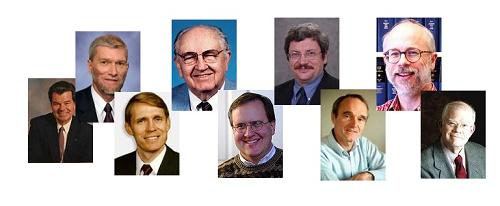 Despite the existence of organizations like Answers in Genesis and The Discovery Institute, should creationism or intelligent design be called unified movements? In their study Doubting Darwin: Creationism and Evolution Scepticism, public theology Theos sought to test this assumption. Their conclusion, based on interviews with 50 prominent anti-evolutionists, found that rather than a unified group with a coherent set of aims and goals, most critics of evolution differ sharply in many aspects.
Despite the existence of organizations like Answers in Genesis and The Discovery Institute, should creationism or intelligent design be called unified movements? In their study Doubting Darwin: Creationism and Evolution Scepticism, public theology Theos sought to test this assumption. Their conclusion, based on interviews with 50 prominent anti-evolutionists, found that rather than a unified group with a coherent set of aims and goals, most critics of evolution differ sharply in many aspects.
According to the report:
Interviewees did not seem to be united in either a geographical or a political sense. They did not necessarily belong to or attend any creationist groups or organisations and, where they did, they belonged to different ones. They did not keep contact with their counterparts in the US and they did not necessarily communicate with each other. There were vehement disagreements over theological matters and over the means by which evolution scepticism could be promoted. Intelligent Design had not successfully created a paradigm through which all evolution sceptics might engage in the debate around evolution.
Respondents also differed in their reasons for disagreeing with evolution, challenging the theory on theological, sociological, and scientific grounds.
However, the study did find that figures like Richard Dawkins have a galvanizing effect on evolution criticism and brought more religious believers under the banner of evolution scepticism. Respondents also felt that creationist and ID arguments were unfairly biased against and not given equal consideration, leading to a sense of being on the defensive and under attack by the scientific community, rather than a sense of contributing to science.
The full report can be found here.
Editor’s Note:
Due to concerns about unhelpful comments on the Science and the Sacred
blog, we have decided to block posts that do not engage the topics in a
meaningful way. We welcome both critical and supportive voices, but
request that all posts offer something relevant to the posted topic,
and not simply be inflammatory accusations or lengthy, unrelated
monologues. Our goal in moderation is to assure discussions stay civil, open, and balanced. Lengthy posts are fine, so long as they are courteous and add to the discussion rather than usurp it.

